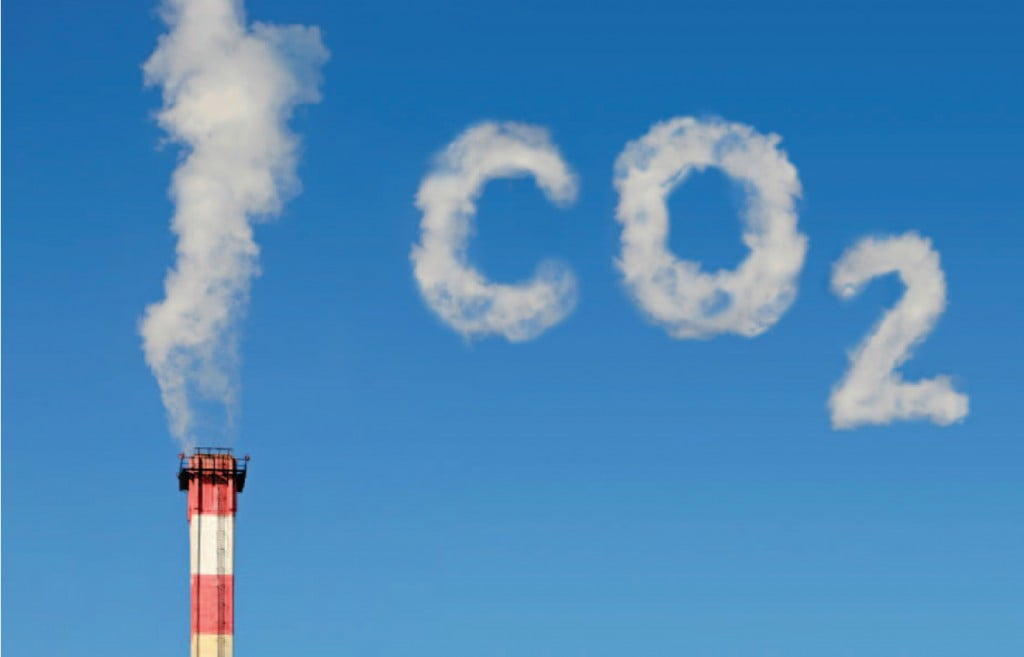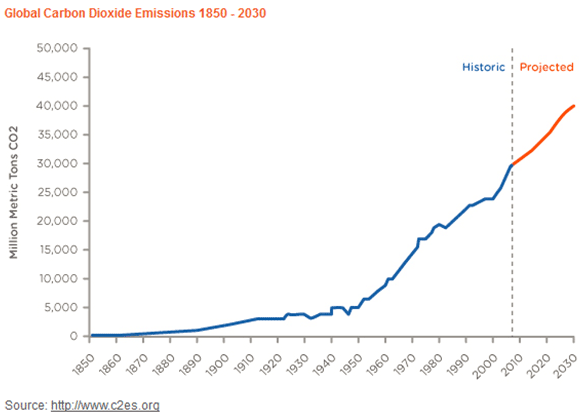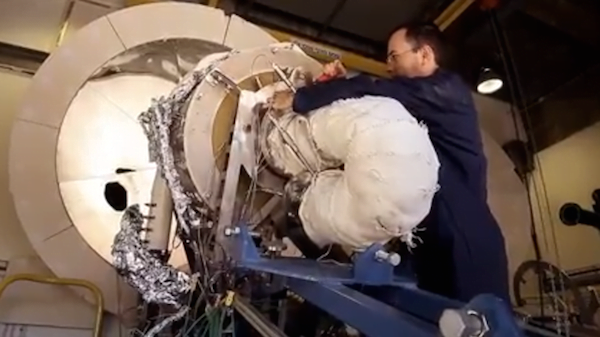Turning water and carbon dioxide (the dreaded CO2) into sustainable fuel may sound like science fiction, but Israeli researchers and companies are making it a reality. The fuel alternatives they’re developing could lead the world on a cleaner, more sustainable future.
In 2013, NoCamels reported that a research team at Israel’s Ben Gurion University came up with an alternative fuel, made from nothing but water and CO2.
Now, Israeli company NewCO2Fuels is working on a cost-effective, CO2-based fuel substitute to power the clean transportation of the future and give hope to the ongoing fight against global warming. NewCO2Fuels, founded in 2011, commercializes a technology conceived by Prof. Jacob Karni’s laboratory at the Weizmann Institute of Science.
Turning water into fuel
By combining two of the most plentiful and naturally occurring chemical compounds on earth, CO2 and water (H2O), the team at NewCO2Fuels hopes to make sustainable fuels more accessible. Using carbon dioxide excess from industrial factories, combining it with water, and heating components of both to very high temperatures, the company has created an environmentally friendly fuel called Syngas (synthesis gas) in a fascinating process.
One proof that these extraordinary technologies are being taken seriously, is that BIRD Energy, the joint fund of the US Department of Energy and Israel’s Ministry of National Infrastructure, recently invested $4 million in five joint American-Israeli projects in the clean energy sector, including NewCO2Fuels.
Karni has been researching solar energy for 20 years now, and NewCO2Fuels is his third company. But, as they say, success is learned the hard way, and for Karni, the process of scientific research was nothing short of complex.
SEE ALSO: Energy Does Grow On Trees, As Israeli Design First Solar eTree
Using a patent-protected reactor powered by concentrated solar energy, the carbon dioxide released from industrial factories is broken apart into its two components: carbon monoxide and oxygen. Then, employing the same powerful reactor, water is broken down into its two constitutional parts: hydrogen and oxygen. When the carbon monoxide from CO2 and the hydrogen from H2O are combined, the result is NewCO2Fuels’ Syngas, a mixture that can be converted into methanol used to fuel vehicles, with a 40 percent conversion efficiency rate, according to the company.
Sign up for our free weekly newsletter
SubscribeThough methanol is already used as a fuel alternative in countries like Brazil and the US, for others it remains an expensive alternative to accessible fossil fuels like crude oil. Company officials hope that using their clean, sustainable and scientific method, they will be able to produce relatively cheap methanol. However, one of the biggest challenges for the company is marketing the product in countries like the US, where gasoline prices remain low (compared to Europe) and fossil fuel lobbies are highly active.
Syngas is not alone in the realm of renewable fuels
But before it can begin marketing itself as a viable alternative to gasoline, NewCO2Fuels faces the more immediate challenge of scaling up the Syngas production process. The company has begun to look into potential industries that have excess heat involved in their production processes, such as the steel industry, ceramics and more, aimed at large companies looking to reduce their environmental footprint. “For now we are looking out for large businesses who seek to reduce their CO2 emission and make additional profit off it,” NewCO2Fuels CEO David Banitt tells NoCamels. The company recently signed a cooperation agreement with one of the world’s largest steel producers, whose name he declined to reveal.
SEE ALSO: Meet Seven Israeli Alternative-Energy Companies With Solutions To Fuel The Future
The next step is scaling the solar-powered reactor up to work on breaking apart large amounts of carbon dioxide and water molecules into the Syngas ingredients. Last year, the company’s team of researchers celebrated success in their production trials at the Weizmann Institute’s solar power testing facility, producing Syngas using concentrated solar power in a laboratory for the very first time. However, this was able to produce only a limited amount of the fuel, and indeed one of the biggest challenges facing the team is breaking down carbon dioxide on an industrial scale.
Fossil fuels? No more!
Following the success of the lab trials, NewCO2Fuels is now looking to construct a demonstration facility that will house its patent-protected reactor. And this next development seems to be in the cards with $9 million in funding from Australian companies, Greenearth Energy and Erdifuel, as well as a $600,000 grant from the Israeli Ministry of Energy. According to the company, investments total well over $10 million so far and the company continues to enjoy support from the Israeli energy sector. Recently, the company was awarded the World Technology Network award in the corporate energy category, following in the footsteps of the automotive industry giant Tesla that won the award in 2013, and has received funding for its cooperative projects from the BIRD Foundation.
Once NewCO2Fuels succeeds in its next step of scaling up the production of Syngas and methane fuels, attention in the energy sector could shift from the Gulf and OPEC countries to a different region of the Middle East — Israel.
Photos: CO2/ NewCO2Fuels/ Screenshot
Related posts

Resilient And Nutritious New Plant-Based Milk Aims To Make A Splash

Chocolate From Cultivated Cocoa Comes Without Environmental Toll

Plastic Fantastic: Startup Takes PVC Back To Its Crude Oil Roots






Facebook comments